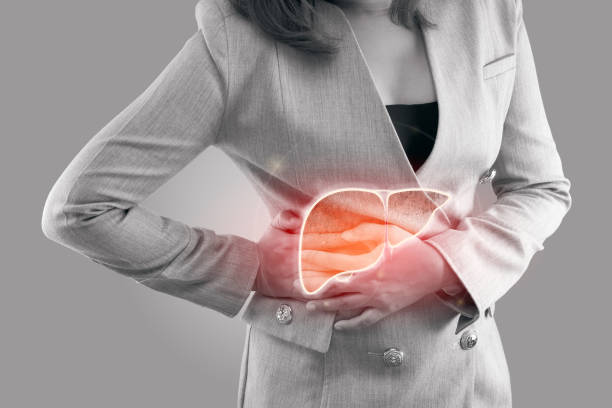7 Warning Signs of a Damaged Liver
7 Warning Signs of a Damaged Liver

7 Warning Signs of a Damaged Liver
The liver is a vital organ responsible for numerous bodily functions, including detoxification, metabolism, and nutrient storage. However, various factors such as unhealthy lifestyle habits, certain medical conditions, and environmental toxins can lead to liver damage over time. Recognizing the warning signs of a damaged liver and taking proactive steps to protect it are crucial for maintaining overall health and well-being.
7 Signs of a Damaged Liver
Jaundice
One of the most recognizable signs of liver damage is jaundice, characterized by yellowing skin and the whites of the eyes. This occurs when the liver cannot effectively process bilirubin, a yellow pigment produced during the breakdown of red blood cells.
Abdominal Pain and Swelling
Persistent abdominal pain, especially in the upper right quadrant, with swelling or bloating, can indicate liver inflammation or enlargement. This may be accompanied by tenderness in the liver area.
Fatigue and Weakness
Liver damage can lead to fatigue and weakness due to impaired liver function in metabolizing nutrients and producing energy. A healthcare professional should evaluate chronic fatigue that doesn't improve with rest.
Nausea and Vomiting
Digestive symptoms like nausea, vomiting, and loss of appetite can occur due to liver dysfunction. The buildup of toxins in the body due to impaired liver function can disrupt digestion and lead to these symptoms.
Dark Urine and Pale Stools
Changes in urine and stool color can indicate liver problems. Dark urine may result from excess bilirubin, while pale or clay-colored stools can indicate a lack of bile reaching the intestines.
Easy Bruising and Bleeding
The liver plays a crucial role in blood clotting by producing proteins necessary for this process. Liver damage can lead to a deficiency in these clotting factors, resulting in easy bruising and prolonged bleeding from minor injuries.
Itchy Skin
Liver dysfunction can cause bile salts to accumulate in the skin, leading to itchiness. This symptom, pruritus, is often more pronounced in the hands and feet.
Now that you know the signs of a damaged liver, let’s explore ways to protect this vital organ.
How to Protect Your Liver
Maintain a Healthy Weight
Obesity and excess body fat can contribute to liver damage. Aim for a balanced diet rich in fruits, vegetables, whole grains, and lean proteins, and engage in regular physical activity to maintain a healthy weight.
Limit Alcohol Consumption
Excessive alcohol consumption is a leading cause of liver damage. If you drink alcohol, do so in moderation and avoid binge drinking. Men should limit intake to two drinks daily, while women should limit drinking to one daily.
Practice Safe Sex
Hepatitis B and C are viral infections that can cause liver inflammation and long-term damage. Practice safe sex, and consider vaccination if you're at risk of exposure to these viruses.
Avoid Tobacco
Smoking can exacerbate liver damage and increase the risk of liver cancer. Quitting smoking is beneficial not only for your liver but for general health.
Be Cautious with Medications
Some medications, especially when taken in excess or over a prolonged period, can harm the liver. Follow dosage instructions carefully, and consult a healthcare professional before starting new medications or supplements.
Get Vaccinated
Vaccination against hepatitis A and B can help prevent viral infections that can lead to liver damage. Stay up to date with recommended vaccinations, especially if you're traveling to areas where these infections are prevalent.
Manage Chronic Conditions
Conditions such as diabetes, high blood pressure, and high cholesterol can contribute to liver damage. Manage these conditions through lifestyle modifications, medication adherence, and regular check-ups with healthcare providers.
Practice Good Hygiene
Proper hygiene, including handwashing and avoiding sharing personal items such as toothbrushes or razors, can help prevent the spread of hepatitis viruses and other infections that affect the liver.
Limit Exposure to Toxins
Minimize exposure to environmental toxins such as chemicals, pesticides, and industrial pollutants that can harm the liver. Use protective equipment when working with hazardous substances.
Get Regular Check-ups
Routine medical check-ups can help monitor liver health and detect potential issues early. Follow recommended screening guidelines and discuss any concerns with your healthcare provider.
Bottomline
In conclusion, being aware of the warning signs of a damaged liver and taking proactive steps to protect liver health is essential for overall well-being. By adopting a healthy lifestyle, avoiding harmful habits, and seeking medical advice when needed, you can support your liver's vital functions and maintain optimal health.
